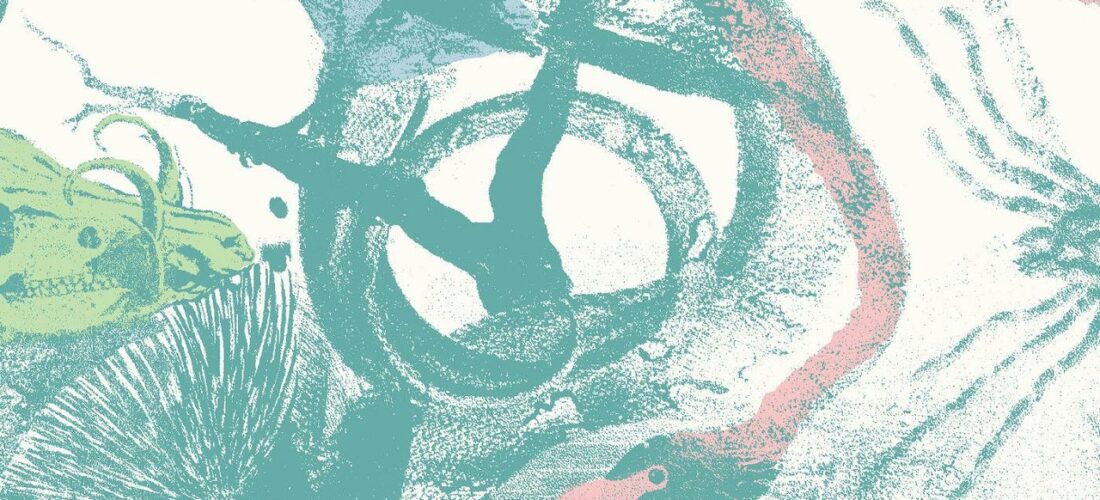SUSS evoke the blistering days and chilly nights of an American desert. Their take on “ambient country,” a term they apparently coined, is elegant, luxurious, and teeming with technology—less like actually living in the Mojave than watching a time-lapse of the sky dappling its mesas and buttes. The New York trio leans hard into these imagined environs: A 2022 self-titled album featured songs titled “Gallup, NM” and “Needles, CA,” communities along Route 66 that the group’s members knew mostly from the vantage of the tour van. If the cowboy shtick sounds like cosplay, it disguises an equally prominent Downtown sensibility: SUSS, once a quartet with synth wizard Gary Leib before his unexpected death in 2021, weave their sound with a legacy of improvisation that has as much to do with the genre experiments of the Kitchen and the ’90s Knitting Factory as, say, the Grand Ole Opry. The potentially straw-thin gimmickry of “ambient country” is a vessel for urban yearnings, daydreams of pastoral life conjured up in the confinement of the metropolis.
It helps that the band, which now comprises pedal steel player Jonathan Gregg and multi-instrumentalists Bob Holmes and Pat Irwin (onetime guitarist for the B-52’s), emerged during the final years of the last decade, both an efflorescent period for ambient music and a moment when country was becoming more palatable to a wider variety of listeners. SUSS highlight a big-sky sweep that informed the former genre throughout its history: Pedal steel set a tone on Brian Eno’s scene-defining 1983 record Apollo, resurfaced on the KLF’s 1990 game-changer Chill Out, and took centerstage on Bruce Kaphan’s underknown 2001 record Slider, a focal point for the seemingly walleyed convergence of new age and Americana. SUSS’s 2018 debut Ghost Box may not have forged an original style, but it drew a bright red circle around ambient aesthetics that had always that had always hidden in plain sight. Sometimes, putting a name to the unnameable is what innovation is all about.
Their new album, Birds & Beasts, takes the time-lapse metaphor to its extreme. The record seems to deal in eons, in the slow progression of ecology—the movements of fauna and the death and rebirth of flora. One can feel millennia pass in this record. The songs are wordless, aside from some muffled speech samples, so the only clues to their themes are SUSS’ highly suggestive song titles—“Migration,” for example, or “Overstory,” which brings to mind a verdant, thick canopy in a part of the world that has since become dusty and arid. (Not to mention novelist Richard Powers’ 2018 lament for the death of trees.) Many of the tunes are based around sighing keys, piano, and pedal steel, but “Restless” and “Flight” forefront finger-picked guitar rhythms, the sound of a small animal scurrying across a huge landscape.
